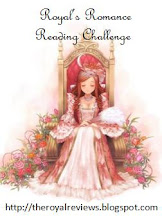Well here are the discussion Questions for our next book ... Enjoy :)
1. How does Bronte create sympathy for Jane immediately?
2. How does the weather, throughout the novel, function?
3. How important is Jane's appearance to her character? Jane thinks she is ugly; is this confirmed by others in the novel?
4. Does Mrs. Reed treat Jane badly because she thinks she deserves it, or because she believes it is good for her? Is her conscience clear?
5. Where does Jane's shyness come from?
6. In this novel, how do people's looks reflect their characters?
7. Jane tells of her childhood, and then skips 8 years to the time when she gets the job with Rochester. Why tell of her childhood at all? Why not just begin with Rochester?
8. Rochester's disastrous marriage to Bertha was based on passion, while St. John refuses to marry Rosamund because of his passion for her. What is Brontë saying about the role passion should play in marriage?
9. When Jane hears Rochester's voice calling while he is miles away, she says the phenomenon "is the work of nature" (p. 467). What does she mean by this? What are we intended to conclude about the meaning of this experience?
10. What is the balance of power between Jane and Rochester when they marry? Does this balance change from the beginning of the marriage to the time ten years later that Jane describes at the end of the novel (p. 500-501)? In a romantic relationship, does one partner inevitably dominate the other?
11. Should an individual who holds a position of authority be granted the respect of others, regardless of his or her character?
12. What is the first indication that something may be amiss at Thornfield? Does Mrs. Fairfax know the truth?
13. Take a close look at Jane's first meeting with Rochester. In the typical Gothic novel, or in the typical fairy tale, how do the man and woman typically meet? How do they act? How does Charlotte Bronte violate these conventions in this scene?
14. How do Rochester's behaviour and character change during the course of the novel?
15. How does Jane respond to Rochester's attempt to boss her around?
16. In Victorian society, it was assumed that men were crude and active; women were passive, pure, and spiritual. Do Jane and Rochester fit into these stereotypes?
17. How do Jane's feelings for Rochester develop and change over time? How does Jane try to deny and resist her feelings for him?
18. When do you begin to suspect Rochester's feelings for Jane?
19. Why does Jane hold Rochester at arm's length during their courtship? Does this mean she doesn't love him?
20. Jane sees Rochester almost as a god; is this, in the context of the novel, a good or bad thing?
21. How does Rochester try to manipulate Jane into doing what he wants her to do? What makes her able to resist him?
22. Why doesn't Jane tell Rochester right away how she feels about him?
23. Why (aside from his wife's death) does Jane agree to marry Rochester now? What reservations did she have before, that have now been removed?
24. Does the novel have a "happily ever after" ending?
25. Jane Eyre begins as a penniless orphan, and ends up with a very good life. How does she gain the personal power that leads her to happiness?


















No comments:
Post a Comment